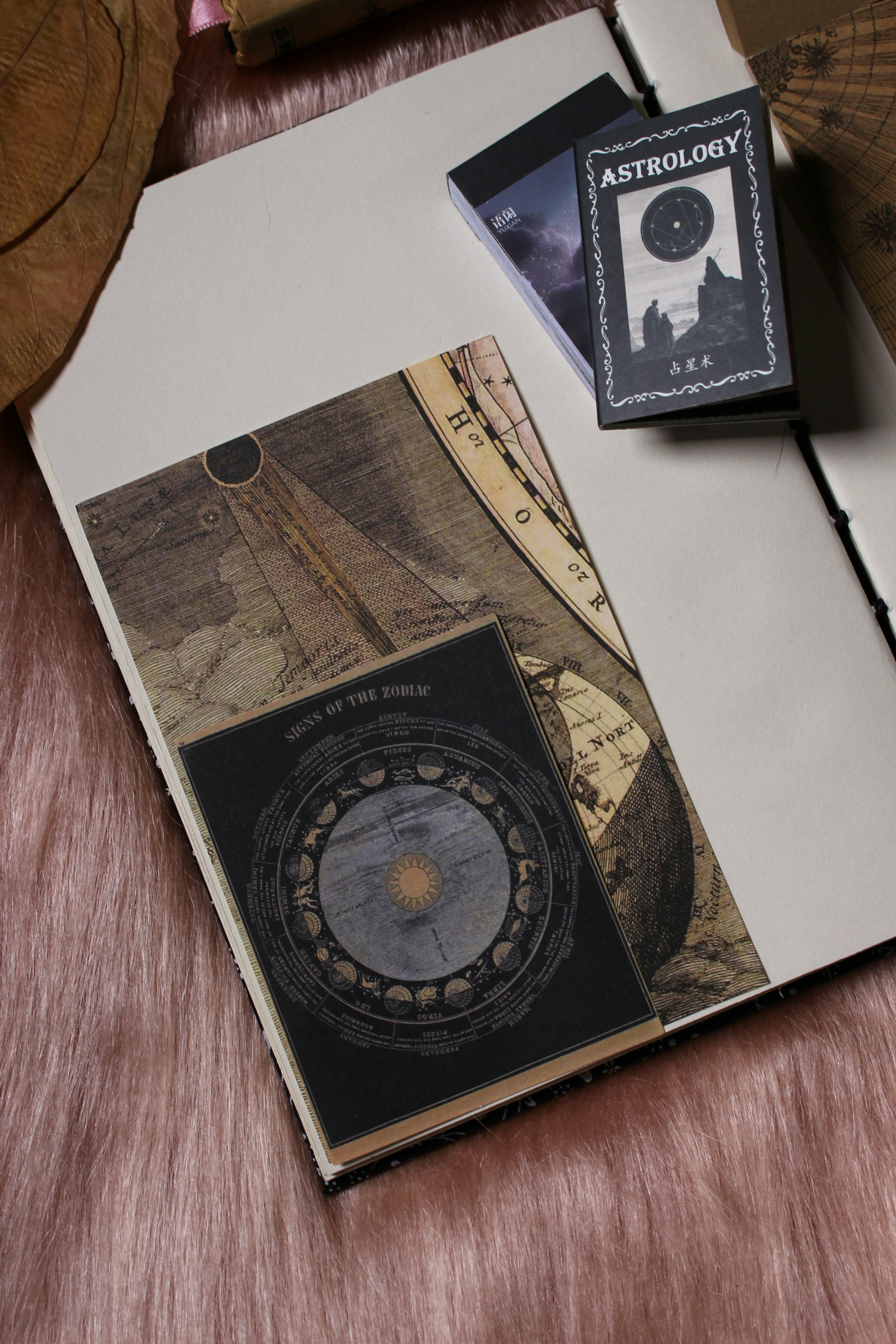Introduction to Astrology: Western vs. Vedic
Astrology, the study of celestial bodies and their influence on human affairs, has captivated civilizations for millennia. Two of the most prominent branches of astrology are Western and Vedic, each with distinct historical origins and methodologies. Western astrology, often referred to as tropical astrology, is based on the position of the sun relative to the Earth’s seasons. Its roots can be traced back to ancient Greece and Babylon, with significant contributions made by figures such as Ptolemy and later Western philosophers. This system divides the sky into twelve equal parts, corresponding to the zodiac signs associated with twelve months of the year.
Conversely, Vedic astrology, or Jyotish, originates from ancient India and is heavily intertwined with Hindu philosophy. This system focuses on the sidereal zodiac, which is aligned with the fixed stars, accounting for the precession of the equinoxes. As a result, Vedic astrology places greater emphasis on the constellations and their relative positions at the time of a person’s birth. This foundational difference leads to varying interpretations of zodiac signs, planetary positions, and individual horoscopes. Practitioners of Vedic astrology utilize an elaborate system of nakshatras, or lunar mansions, to further refine predictions and personality assessments.
The differences in these astrological systems contribute to a perception among some individuals that their Western zodiac sign may be inaccurate or misaligned. Discrepancies, such as the shift in zodiac sign dates due to the precession of the equinoxes, often result in conflicting conclusions about one’s astrological profile. Consequently, many people are exploring the potential accuracy of Vedic astrology as a means of understanding their astrological identity more deeply. This exploration invites a broader conversation about the relevance and applicability of astrological systems in contemporary society.
Understanding the Zodiac Signs
The concept of zodiac signs has long captivated humanity, providing insights into personality traits, behaviors, and destinies. In astrology, both Western and Vedic (or Jyotish) systems utilize twelve zodiac signs, each associated with specific characteristics and attributes. However, the assignment and interpretation of these signs can differ significantly between the two methodologies.
In Western astrology, the zodiac signs are based on the position of the sun at the time of an individual’s birth, corresponding to the twelve divisions of the ecliptic. The zodiac signs include Aries, Taurus, Gemini, Cancer, Leo, Virgo, Libra, Scorpio, Sagittarius, Capricorn, Aquarius, and Pisces. Each sign is tied to particular traits; for instance, Aries is often characterized by its energetic and pioneering spirit, while Taurus embodies steadiness and materialism.
Conversely, Vedic astrology relies on the actual constellations and their positions in the sky, often leading to a discrepancy in assigned zodiac signs when compared to Western astrology. This system divides the signs into different categories such as the Rashi, which represents the moon sign, critical for astrological predictions. For example, an individual born under the sign of Gemini in Western astrology may actually fall under Taurus in Vedic astrology, depending on their lunar position. Moreover, Vedic astrology places a stronger emphasis on the influence of the moon and the astrological nakshatras, or lunar mansions, thus providing a deeper layer of interpretation.
Additionally, each zodiac sign in both systems has elemental associations (fire, earth, air, water), modes (cardinal, fixed, mutable), and ruling planets, contributing to their distinct characteristics. Understanding these signs thoroughly within both the Western and Vedic frameworks reveals their unique approaches to astrological insights, challenging the conventional views maintained by many adherents to Western astrology.
The Precession of the Equinoxes: A Key Factor
The precession of the equinoxes is an astronomical phenomenon that affects the orientation of Earth’s axis in relation to its orbit around the Sun. This gradual shift occurs due to gravitational forces exerted by the Moon and the Sun on Earth, resulting in a cycle that spans approximately 26,000 years. As a consequence, the position of the stars and constellations changes over time, leading to significant implications for astrology.
Western astrology is predominantly based on a fixed zodiac calendar that corresponds to specific seasonal dates. This framework assumes that the position of the constellations remains constant. However, because of precession, the celestial coordinates of zodiac signs are shifting. For instance, someone born under the sign of Aries according to the Western system may find that the actual constellation of Aries has moved due to precession. This misalignment results in a discrepancy between astrological readings and astronomical reality, ultimately challenging the validity of birth charts calculated using Western astrology.
In contrast, Vedic astrology, or Jyotish, takes into account the precession of the equinoxes and utilizes a sidereal zodiac that aligns directly with the actual position of stars in the sky. The use of the sidereal system means that Vedic astrology aligns more accurately with contemporary celestial events, leading practitioners to derive more relevant insights based on an individual’s true cosmic positioning. This alignment aids in mitigating the confusion that arises from the outdated framework of Western astrology, thus offering a more precise understanding of one’s astrological influences.
The Calculation Differences: Sidereal vs. Tropical
Astrology, a practice that traces back thousands of years, has evolved into two primary systems: Vedic, which utilizes the sidereal zodiac, and Western, which employs the tropical zodiac. The distinction between these two systems significantly impacts the interpretation of astrological phenomena and the zodiac signs attributed to individuals.
The sidereal system, fundamentally linked to the constellations, takes into account the actual positions of celestial bodies in relation to fixed stars. As a result, the signs in Vedic astrology correspond closely to the astronomical reality of the heavens. This system recognizes a phenomenon known as the precession of the equinoxes, a gradual shift in the orientation of Earth’s axis that has caused the zodiac signs to drift over time. Because of this shift, many individuals may find that their traditional Western zodiac sign does not align with their Vedic sign.
<pconversely, a="" account="" actually="" an="" and="" annual="" approaches.="" aries="" around="" astrological="" astrology="" astrology,="" at="" based="" between="" born="" cycle="" defines="" differences="" discrepancies="" distinct="" does="" drift="" earth="" earth's="" example,="" fall="" focuses="" for="" in="" individual="" its="" leading="" linking="" may="" means="" not="" of="" on="" orbit="" p="" particular="" personality="" pisces="" position="" predictions.
The implications of these calculation differences extend beyond mere sign assignment; they influence the entire framework of astrological interpretation. Recognizing these disparities can lead to deeper insights into personal characteristics, karmic patterns, and life events, emphasizing the need to consider both systems when exploring one’s astrological identity.
Planetary Influence in Vedic Astrology
Vedic astrology, also known as Jyotish, places significant emphasis on the positions of celestial bodies, particularly the planets, in relation to an individual’s natal chart. This ancient Indian system of astrology offers a more intricate analysis by incorporating the concept of nakshatras, or lunar mansions, which are 27 divisions of the sky that further refine astrological interpretations. The influence of these celestial elements is critical in understanding the unique traits and life paths of individuals.
In Vedic astrology, each planet symbolizes various aspects of life and character, with each having its distinct attributes and effects. The position of these planets at the time of an individual’s birth serves as a blueprint, highlighting potential challenges and strengths. For instance, the placement of the Moon, which governs emotions and intuition, within a specific nakshatra can significantly affect an individual’s personality, exploring the nuances often overlooked in Western astrology.
The integration of nakshatras into Vedic astrology provides a deeper understanding of the astrological influences on a person’s life. Each nakshatra has its ruling deities and cosmic significance, which enriches the interpretative process, granting insights into a person’s psychological makeup and life experiences. This contrasts with Western astrology, which primarily focuses on the sun signs and lacks this intricate layer of analysis.
The detailed exploration of planetary positions alongside nakshatras in Vedic astrology allows for a more customized reading, addressing not merely the broad categorizations of personality types, but delving into the harmonics of personal traits. This nuanced approach not only offers clarity but can also equip individuals with a better understanding of their life paths, potentially leading to more informed decisions and personal growth.
Cultural Perspectives: East vs. West
Astrology has been an integral part of human culture across the globe, but its manifestation can differ significantly between Eastern and Western societies. In the East, particularly in India, astrology is deeply intertwined with spiritual beliefs and is regarded as a guiding force in daily life. Vedic astrology, rooted in ancient Indian texts, is viewed not merely as a predictive tool but as a means to understand one’s place in the universe and the karmic influences affecting one’s life. This cultural perspective emphasizes the correlation between celestial movements and individual destiny, leading many to adopt Vedic astrology for a more enriched understanding of personal circumstances.
Conversely, Western astrology, with its origins in Greco-Roman traditions, often tends to be more focused on personality traits and psychological insights. The Western model promotes a subjective interpretation of the horoscope, which can make it appealing to those seeking self-exploration and personal development. However, this subjective approach can lead to oversimplification of astrological interpretations, lacking broader cultural context. The increasing popularity of Vedic astrology in Western societies indicates a growing desire to reconnect with a more comprehensive and structured framework that offers deeper insights into individual fate and life path.
Furthermore, societal values and beliefs play a crucial role in how astrology is perceived and practiced. In the West, astrology has often been dismissed as a pseudoscience, leading to skepticism about its legitimacy. Conversely, in Eastern cultures, particularly in India, astrology is highly respected and often consulted in important life decisions, such as marriage or career paths. The contrasting cultural significance of astrology contributes to the resurgence of interest in Vedic practices within the West, as individuals seek more grounded and historically rich methods of understanding their lives and destinies.
The Accuracy Debate: Testimonials and Experiences
The discussion surrounding the accuracy of Western and Vedic astrology often garners personal accounts, revealing how individuals perceive these two distinct systems. Numerous testimonials illustrate the vast differences in insights gained from each method, sparking further debate on their efficacy. For instance, one individual recounted their experience with Western astrology, stating that the predictions felt generic and failed to resonate deeply. In contrast, their subsequent exploration into Vedic astrology offered a more profound connection, providing tailored insights that seemed strikingly accurate in aligning with their life’s events.
Many others echo similar sentiments. An individual shared their experiences with both systems, emphasizing that the Vedic readings, enriched by a nuanced understanding of planetary positions and their influences, delivered a more comprehensive forecast. They noted how Vedic astrology’s focus on detailed planetary transits and Nakshatras offered valuable foresight that the broader strokes of Western astrology could not match. This alignment with reality reinforced their belief in Vedic practices as more precise.
However, the debate remains subjective; some individuals who favor Western astrology argue that it resonates with their personal beliefs and experiences. They find that Western horoscopes, with their emphasis on psychological traits and personality analysis, provide relatable insights into their character and life choices. This perspective emphasizes that personal resonance plays a crucial role in determining an astrological system’s effectiveness.
Across various testimonials, the consensus is that experiences vary widely based on personal beliefs, cultural context, and individual expectation from the readings. This variability in perception enriches the discussion on astrological accuracy, prompting a deeper exploration of how different traditions can uniquely inform and enhance an individual’s self-understanding.
Finding Your True Zodiac Sign: A Guide
Understanding one’s accurate zodiac sign is fundamental for individuals seeking alignment with their astrological identity. The Vedic astrology system, rooted in ancient Indian culture, offers a comprehensive approach to determine one’s true zodiac sign through intricate calculations and celestial observations. The process begins with obtaining the exact time, date, and location of your birth, which are critical for creating a personalized Vedic chart.
Once this information is collected, the next step involves converting the birth details into the Vedic system, which is based on the sidereal zodiac. This method contrasts with the tropical zodiac used in Western astrology, which shifts over time. The sidereal zodiac accounts for the actual positions of the constellations, making it essential to assess the current astronomical alignments. Vedic astrologers utilize the position of the Moon at the time of birth, known as the “Chandra Rashi,” which serves as a foundation for most Vedic readings.
Calculation of the Ascendant, or “Lagna,” is another significant element in determining your true zodiac. To find your Ascendant, you will need to input your birth details into a Vedic astrology calculator or consult an experienced astrologer. They will assess the rising sign influenced by the local horizon at the time of your birth, which provides insight into various aspects of your personality and life path.
Furthermore, it is vital to pay attention to the Nakshatras, or lunar mansions, which further delineate your astrological profile. Each Nakshatra provides unique traits and presents additional insights into your individual characteristics. By investigating these elements and understanding how they interplay, you can reveal your Vedic zodiac sign accurately. Thus, embarking on this journey not only enhances your self-awareness, but it can also guide you in making informed life decisions.
Conclusion: The Future of Astrology in a Changing World
Astrology has experienced significant evolution throughout history, adapting itself to cultural shifts and scientific advancements. In contemporary society, there is a growing curiosity about the various astrological practices available, particularly the differences between Western and Vedic astrology. This exploration has led to an increased awareness of the potential limitations inherent within Western astrology, as many individuals seek greater alignment with their true selves.
Vedic astrology, with its ancient roots and holistic approach, is increasingly being recognized for its potential to provide deeper insights into an individual’s personality and life path. Unlike Western astrology, which focuses primarily on sun signs, Vedic astrology takes into account the moon’s position and the planetary periods, offering a more comprehensive view. This breadth of understanding allows practitioners to explore dimensions of life that Western astrology may overlook, engendering a sense of authenticity and purpose.
As society continues to grapple with the complexities of modern life, the quest for self-understanding becomes paramount. People are more inclined to seek out systems that resonate with their personal experiences and provide practical guidance. This shift may foster a greater acceptance of Vedic astrology within Western contexts, encouraging a blending of practices that could lead to a more integrated approach. Moreover, the internet facilitates access to diverse astrological insights, allowing for a broader dialogue among practitioners and enthusiasts alike.
The future of astrology lies in its ability to adapt and resonate with individuals seeking personal growth and truth. As interest in Vedic methods grows, it is likely that we will witness a significant paradigm shift, where the fusion of Western and Vedic practices invites a renewed understanding of astrology and its role in facilitating meaningful connections in a changing world.









